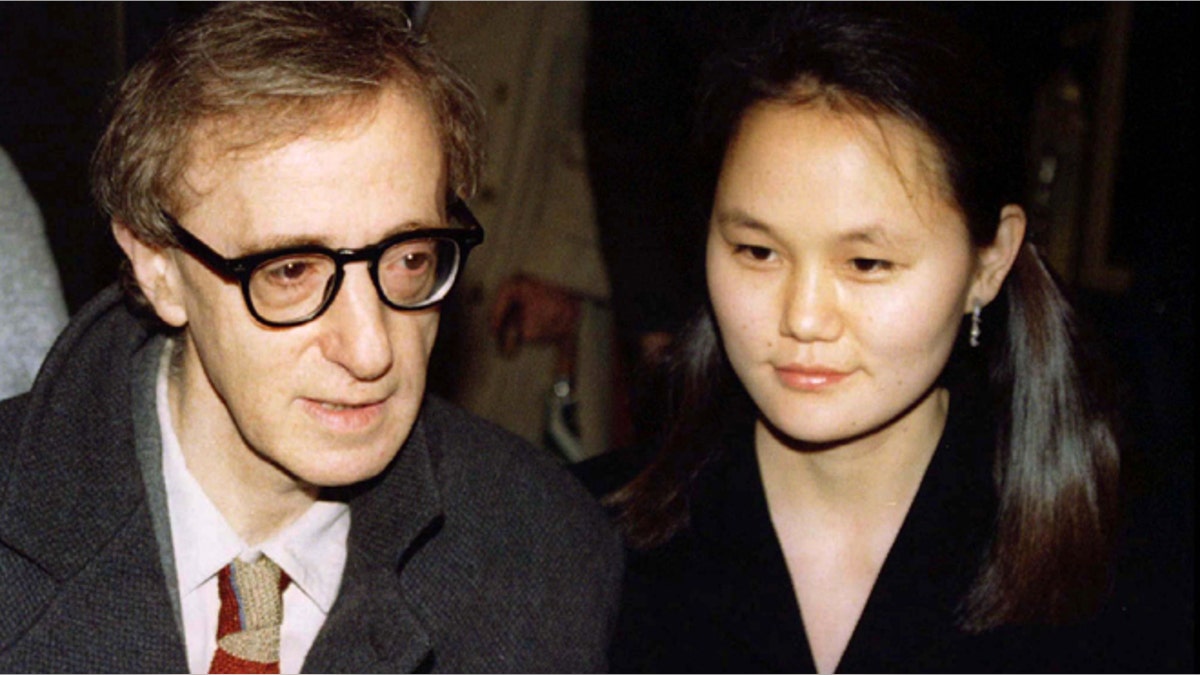
Woody Allen (L) and Soon-Yi Previn arrive for the premiere of Allen's movie, "Everyone Says I Love You," in New York January 9. The movie is the first musical written and directed by Allen. It was filmed in New York, Paris, and Venice. - RTXHR3G
Woody Allen says his 23-year relationship with Soon-Yi Previn worked because of their previous parent-child relationship.
“I’m 35 years older, and somehow, through no fault of mine or hers, the dynamic worked,” the 79-year-old director told NPR in an interview published Wednesday. “I was paternal. She responded to someone who was paternal.”
“She deferred to me, and I was happy to give her an enormous amount of decision-making just as a gift and let her take charge of so many things,” he continued. “She flourished. It was just a good luck thing.”
But the couple shares contradictory views on why their relationship worked. Previn, 44, told Time in 1992, “To think that Woody was in any way a father or stepfather to me is laughable.”
The two began their relationship in the late ’80s when Allen was dating Mia Farrow, with whom he adopted several children. Previn is Farrow’s adopted daughter from her failed marriage to composer André Previn.
“I started the relationship with her and I thought it would just be a fling. It wouldn’t be serious, but it had a life of its own. And I never thought it would be anything more. Then we started going together, then we started living together, and we were enjoying it. And the age difference didn’t seem to matter. It seemed to work in our favor actually,” Allen said of their romance.
Allen and Previn married in 1997 and have two adopted children together.
“She enjoyed being introduced to many, many things that I knew from experience, and I enjoyed showing her those things. She took them, and outstripped me in certain areas that I showed her,” he continued. “That’s why I’m a big believer in luck. I feel that you can’t orchestrate those things. Two people come along and they have a trillion exquisite needs and neuroses and nuances and they have to mesh, and if one of them doesn’t mesh, it causes a lot of trouble. It’s like the trace vitamin not being in your body. It’s a tiny little thing, but if you don’t have it you die.”
Acknowledging that it’s often said that relationships require “work,” Allen candidly disagreed with the idea.
“If you feel that you have to work at it — a constant business of looking the other way, sweeping stuff under the rug, compromising — it’s not working.”
This article originally appeared in the New York Post.














































